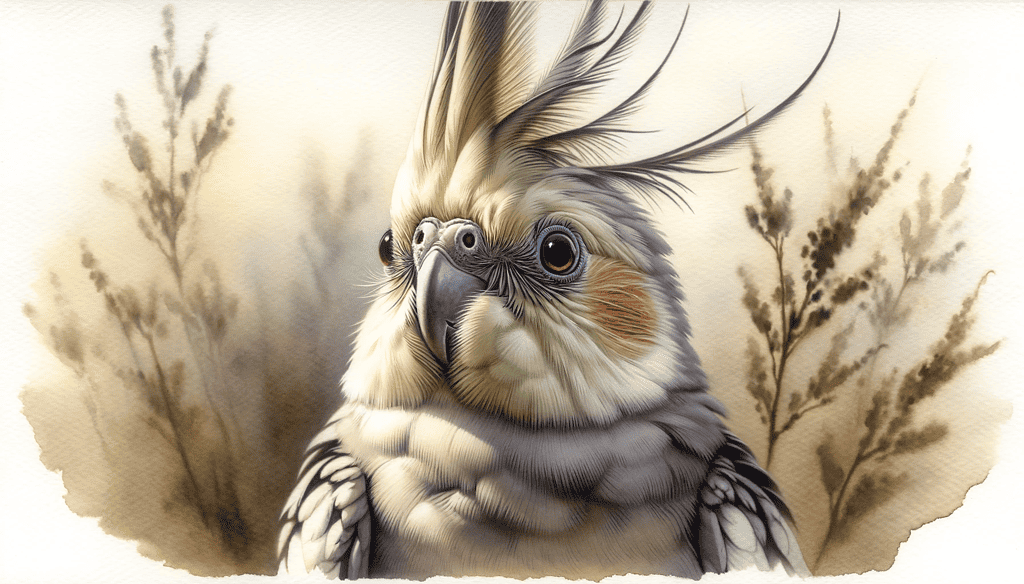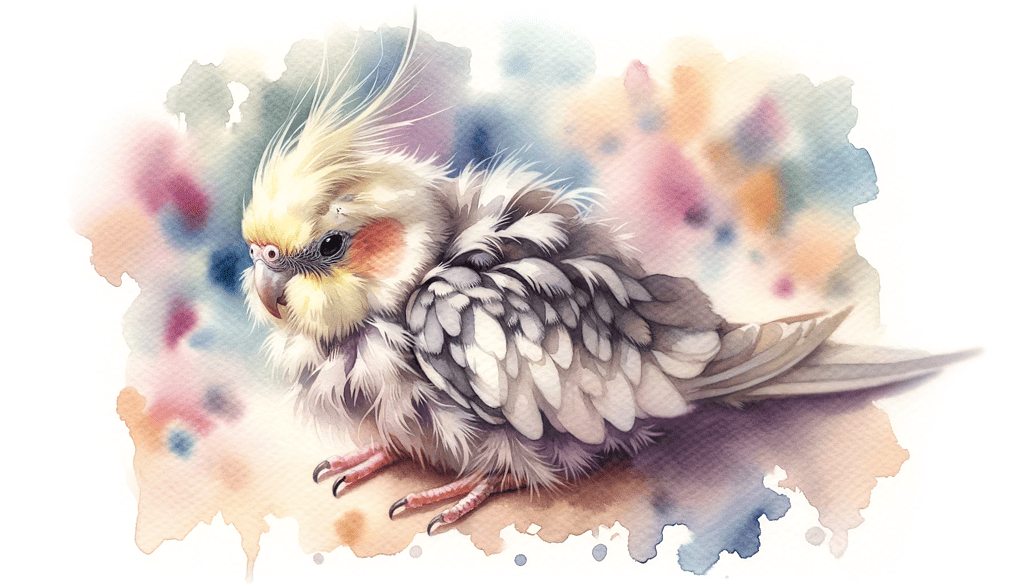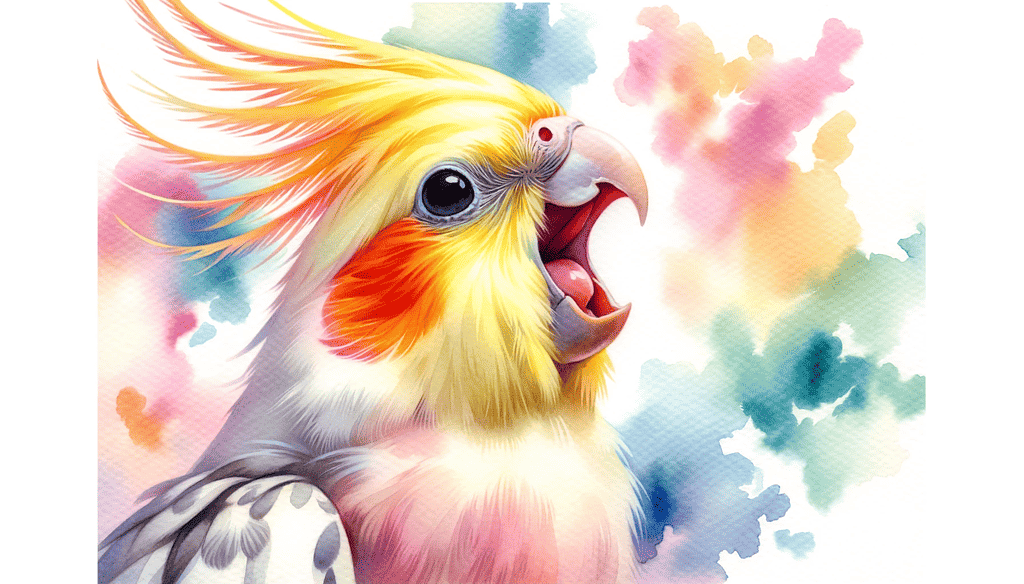
Cockatiels, with their vibrant personalities and expressive behaviors, are beloved pets around the world. But have you ever wondered if your feathered friend is feeling stressed? Recognizing the signs of stress in these sensitive birds is crucial for their well-being.
As a general rule, stressed cockatiels exhibit changes in behavior and physical appearance, such as aggression, feather plucking, changes in vocalization, and weight loss. These signs are key indicators of their emotional state.
In the following sections, we’ll delve deeper into understanding these signs and explore effective ways to alleviate stress in your cockatiel. Stay with us to ensure your bird lives a happy, healthy life.
Can Cockatiels Die From Stress?
Yes, cockatiels can die from stress. Chronic stress in these birds can lead to a weakened immune system, making them more susceptible to various illnesses. Stress can also cause behavioral issues like feather plucking, which can lead to skin infections and other health complications.
Additionally, stress-induced conditions like heart disease can be fatal. It’s crucial for cockatiel owners to recognize and address signs of stress early to ensure the health and longevity of their feathered companions.
Physical Changes Indicating Stress
When it comes to understanding your cockatiel’s health, observing physical changes is key. These changes are often the first indicators that something is amiss in their world.
1. Feather Condition

The condition of a cockatiel’s feathers can tell you a lot about their stress levels. Here are some signs to look out for:
- Ruffled Feathers: Cockatiels often fluff up their feathers to keep warm, but if they’re consistently ruffled, it could be a sign of discomfort or illness.
- Bald Patches: If you notice bald spots or a noticeable thinning of feathers, this could be due to stress-induced plucking.
- Changes in Color: Stress can sometimes affect the pigmentation of feathers, leading to color changes.
- Damaged Feathers: Look for feathers that are frayed or broken, as these can be signs of stress-related behaviors.
- Dull Feathers: Healthy cockatiel feathers are shiny and vibrant. If their feathers appear dull, it could indicate a problem.
2. Look Out For Stress Bars
Stress bars are small lines that run across a feather, indicating periods of stress during the feather’s growth. Here’s how to identify them:
- Examine the Feathers: Gently hold your cockatiel and look closely at the feathers, especially the new ones.
- Look for Lines: Stress bars appear as horizontal lines across the feather shaft.
- Check the Color: These bars may be lighter or darker than the rest of the feather.
- Feel the Texture: Sometimes, stress bars can be felt as well as seen, indicating a change in the feather’s structure.
- Consistency: Multiple feathers with stress bars can indicate a period of prolonged stress.
3. Weight Loss And Appearance Changes
A stressed cockatiel might also show changes in weight and overall appearance. Here’s a comparison to help you identify these signs:
| Aspect | Healthy Cockatiel | Stressed Cockatiel |
| Weight | Stable, appropriate for size | Sudden loss or gain |
| Eyes | Bright, clear | Dull or sunken |
| Posture | Upright, alert | Hunched, lethargic |
| Feather Quality | Smooth, well-preened | Ruffled, plucked, or damaged |
| Activity Level | Active, playful | Less active, possibly lethargic |
Behavioral Changes Indicating Stress
When our feathered friends start acting out of the ordinary, it’s a signal that something’s amiss. Just like us, cockatiels express their discomfort through changes in behavior, often before any physical signs become apparent. The following are signs of stress in cockatiels:
1. Aggression and Irritability
Normally, cockatiels are known for their gentle and friendly demeanor. However, stress can turn these sweet birds into little feisty creatures. Here’s what you should look out for:
- Biting: A stressed cockatiel might start biting more often, even if it’s never shown such behavior before.
- Hissing: This sound is a clear sign of irritation and discomfort in cockatiels.
- Lunging: If your bird suddenly starts lunging at you or other objects, it could be a sign of stress.
- Feather Puffing: Puffing up feathers can be a defensive posture in stressed cockatiels.
- Tail Fanning: A cockatiel might fan its tail as a sign of agitation.
2. Tiredness and Destructive Behavior
Stress can also manifest as a lack of energy or an increase in destructive behavior. This can include:
- Lethargy: A stressed cockatiel might seem unusually tired or uninterested in activities it usually enjoys.
- Feather Plucking: Stress can lead to excessive preening or feather plucking.
- Destructive Chewing: Chewing on cage bars, toys, or other objects more aggressively can be a sign of stress.
3. Changes in Vocalization and Singing

Cockatiels are known for their vocal nature, so changes in how they vocalize can be a significant indicator of stress. Here’s a comparison of normal versus stressed vocalization patterns:
| Normal Vocalization | Stressed Vocalization |
| Regular singing and chirping | Reduced or excessive noise |
| Clear, melodious sounds | Harsh, abrupt sounds |
| Interactive vocalization with humans or birds | Withdrawal from vocal interaction |
| Consistent daily vocal patterns | Irregular or erratic vocalization |
Common Causes of Stress in Cockatiels
Understanding what triggers stress in cockatiels is crucial for creating a comfortable environment for them. Let’s explore some common stressors.
1. Environmental Changes and Loud Noises
Cockatiels are sensitive to their surroundings, and certain changes can be particularly stressful:
- Sudden Loud Noises: Things like fireworks, loud music, or yelling can be very distressing.
- Changes in the Household: New pets, people, or even rearranging furniture can unsettle a cockatiel.
- Unfamiliar Environments: Moving to a new location or changes in the room where the cage is kept.
- Cage Placement: Moving the cage to a busier or noisier part of the house.
- Lighting Changes: Sudden changes in lighting, like brighter lights or longer periods of darkness.
- Temperature Fluctuations: Cockatiels are sensitive to temperature changes, so keeping their environment at a consistent temperature is important.
2. Lack of Rest and Overstimulation
Just like us, cockatiels need a balance of activity and rest. Too much of either can lead to stress:
- Constant Handling: While interaction is good, too much can be overwhelming.
- Lack of Sleep: Cockatiels need uninterrupted sleep time to stay healthy and stress-free.
- Overstimulation: Too much noise, light, or activity can be overstimulating.
How to Help a Stressed Cockatiel
Recognizing stress in your cockatiel is just the first step. The next, and perhaps most crucial, is knowing how to help them. I’ve seen remarkable recoveries simply by making a few changes in their environment and routine. Here’s what you can do:
- Creating a Calm and Consistent Environment: Cockatiels thrive in a peaceful environment. This means reducing loud noises, maintaining a consistent daily routine, and ensuring their living space is safe and secure.
- Adjusting Diet and Nutrition: Just like us, a balanced diet can significantly impact a cockatiel’s health and stress levels. Ensure they’re getting a variety of fruits, vegetables, and high-quality birdseed. Also, consider supplements if recommended by your vet.
- Providing Adequate Space and Stimulation: A cramped cage can cause stress. Make sure their home is spacious enough for them to move freely. Also, include toys and opportunities for mental stimulation to keep them engaged.
Frequently Asked Questions
Can cockatiels become stressed by staying caged or limited?
Absolutely. Limited space and lack of stimulation can be significant stressors for cockatiels.
Do cockatiels hiss when they are stressed?
Yes, hissing is a common sign of stress or fear in cockatiels.
How long can a cockatiel live with stress?
The lifespan varies, but chronic stress can significantly shorten a cockatiel’s life.
Do cockatiels need companionship to avoid stress?
While they are social birds, the need for companionship can vary. Some do well alone, while others thrive with a companion.
Understanding and recognizing stress in cockatiels is vital for their health and happiness. From behavioral changes like aggression and vocalization alterations to physical signs such as feather plucking and weight loss, these indicators help us better care for our feathered companions. Regular veterinary check-ups and creating a stable, nurturing environment are key to preventing stress-related health issues in cockatiels.
